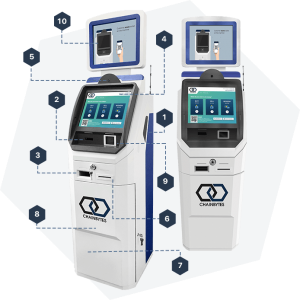Smart contracts are now bringing benefits to Bitcoin users through enhanced functionalities. This opens the door to new features on the Bitcoin blockchain that are similar to Ethereum’s decentralized applications.
With blockchain, users can pay one another directly without permission or authorization from a third party (i.e. banks). This puts users in complete control of their funds. Funds are secured by the user’s digital wallet that stores a unique private key. The private key connects the user to his or her transaction history on the blockchain.
Smart Contracts
Following Bitcoin’s introduction, came various altcoins, with the most popular altcoin being Ethereum. These altcoins were part of the second generation of blockchain applications that introduced new features to cryptocurrency.
One important new feature is smart contracts. Smart contracts allow developers to program code for cryptocurrency functions. Smart contracts enable —
- Digital currencies to be programmable.
- The development of decentralized applications that extend the features of cryptocurrency tokens.
These developments began a boom in initial coin offerings in 2017 by allowing developers to build their own tokens through the use of smart contracts. This brought more liquidity and users into the Ethereum blockchain ecosystem and opened the door to many new opportunities in the cryptocurrency space.
Unfortunately, Bitcoin originally was not able to support smart contracts since it was based on a different structure.
Difference between Bitcoin and Ethereum Smart Contracts
-Ethereum
- Transactions are based on the state and provenance of transactions on a digital ledger.
- An Ethereum smart contract uses its own programming language called Solidity.
- Ethereum smart contracts are also Turing complete, which means they are more capable of complex data manipulation functions.
-Bitcoin
- Transactions use the UTXO model.
- Bitcoin smart contracts use a script language.
- Bitcoin smart contracts are simpler and less complicated to develop.
Smart Contracts for Bitcoin
Originally, Bitcoin was not able to support smart contracts. Luckily for Bitcoin, developers did not want it to miss out on the benefits of smart contracts.
Developers recently created an upgrade for Bitcoin called Taproot. This upgrade hopes to introduced smart contracts to Bitcoin for general use. Taproot will provide functions like the following:
- Multi-signature accounts – Enforces the release of funds through multiple digital signatures.
- Multi-party agreements – Allows multiple users to create agreements on transactions.
- Contract Interfaces – Offers utility functions that other contracts can reference.
With Bitcoin smart contracts, several addresses (i.e. accounts) can interact in a single transaction. This allows developers to build applications that can lock funds which require multiple user’s digital signatures to unlock. Contracts can also be utilized to provide functions that are accessible by other contracts, like a library module.
With Taproot, users can gain access to new features that will help them manage their Bitcoins more efficiently. Examples include the ability to create new functions like inheritance and delegation that can be used for certain transactions.
Other technologies have been introduced using smart contracts to offer users new services for buying and selling Bitcoin. One of these new technologies is Bitcoin ATMs. A Bitcoin ATM allows users to buy or sell bitcoin in real time. Bitcoin ATMs are connected to the Internet and often utilize QR codes to send and receive tokens to users’ digital wallets.
Follow us on Social Media:
In the meantime, you can follow us on our channels, visit our website, or call us directly!
Check out our website, https://www.chainbytes.com
Give us a call! +1 (415) 529-5777 or shoot us an email.
Related News
Understanding Bitcoin ATM Profits: A Deep Dive Into the Business
Introduction In the dynamic and rapidly evolving financial world, one revolutionary concept that has come to the fore is the Bitcoin ATM. Due to the increasing acceptance of digital currency and the growth of Bitcoin, the emergence of Bitcoin ATMs has altered how...
Bitcoin ATM Globalization: A Study of the Worldwide Rapid Expansion
Digital currency usage has drastically changed in recent years. At the forefront of this revolution are Bitcoin ATMs. Instead of being simple ATMs, these are entry points into the world of cryptocurrencies. Let's examine this technology's quick development in more...
The SEC’s Loss to Ripple: Implications for Bitcoin ATM Operators
In the world of digital assets, there's a notable transformation happening. The recent lawsuit of Ripple Labs versus the Securities and Exchange Commission (SEC) has far-reaching implications for the cryptocurrency industry. Notably, the ruling has clarified some...






